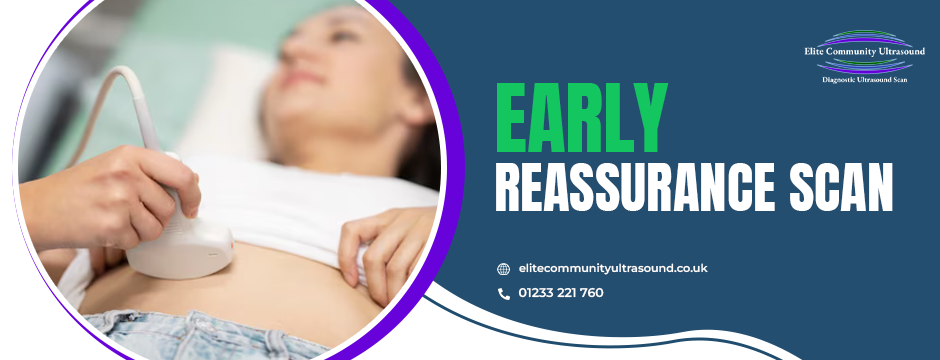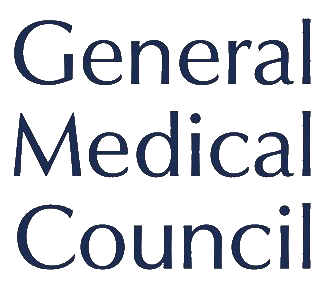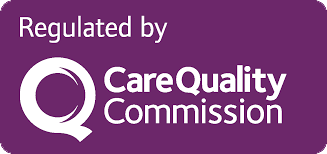What Parents Can Learn from Early Reassurance Scans in The First Trimester?
The first trimester is often filled with excitement, but also deep uncertainty and worry. Many parents experience anxiety about their baby’s health. Waiting for the standard scans can sometimes feel like a never-ending process.
Every day brings new questions, from heartbeat detection to pregnancy viability. These doubts often disrupt sleep and peace of mind. However, early reassurance scans can provide critical answers during these uncertain weeks.
They help parents gain clarity and build confidence in the pregnancy’s progress. With accurate insights, emotional comfort becomes possible for both expectant mothers and their partners.
In this blog, we will explore what parents can learn from reassurance scans, how they help emotionally, and why they matter.
Understanding The Role of Early Reassurance Scans
Reassurance scans in the early days are usually performed between six and twelve weeks of pregnancy. These scans use ultrasound technology to assess early development accurately.
They are not always routine but are highly recommended when parents feel uncertain. Unlike standard scans, these provide insights much earlier in pregnancy. Parents often turn to them when anxiety becomes overwhelming.
With medical guidance, these scans help clarify doubts and ensure healthy progression. Importantly, they also support early detection of complications, if any exist.
Why Expectant Parents Feel Anxious in The First Trimester?
The first trimester is often the most emotionally challenging period for parents. Hormonal changes and physical discomfort add layers of stress.
The fear of miscarriage is a major source of concern for many couples. Additionally, limited visible pregnancy signs during early weeks worsen uncertainty. Every minor cramp or symptom absence can trigger new fears instantly.
Parents crave reassurance that their baby is developing normally inside the womb. Without confirmation, worries about pregnancy viability often overshadow the joy.
Here, early reassurance scans near you provide evidence-based answers, reducing unnecessary panic.
Key Insights Parents Gain from Early Reassurance Scans
Confirmation of Pregnancy Viability
The first major insight is confirmation of pregnancy viability. Parents can see the embryo inside the gestational sac. The detection of a heartbeat often becomes a deeply emotional moment.
Hence, this confirmation reassures parents that the pregnancy is progressing healthily. Without it, many parents struggle with constant uncertainty and doubts.
Accurate Gestational Dating
Many parents miscalculate their conception timeline based on irregular cycles. Proper reassurance scans provide accurate gestational dating for pregnancy.
Hence, this helps parents and doctors plan further tests and appointments properly. Accurate dating also prevents confusion during later growth assessments.
Detection of Multiple Pregnancies
Another important lesson involves the early detection of twins or triplets. These findings often surprise parents but allow better preparation.
With early detection, healthcare providers can offer appropriate advice. Parents also get time to adjust emotionally and logistically to new realities.
Early Identification of Complications
Sometimes, reassurance scans highlight potential complications, like ectopic pregnancies or miscarriages. Although difficult, early detection ensures timely intervention.
Parents can take informed medical decisions with professional support. Early diagnosis often improves safety for both mother and baby significantly.
Emotional Benefits of Reassurance Scans
Emotional well-being is just as important as physical health. Parents often underestimate how much stress impacts pregnancy. An early reassurance scan helps reduce anxiety by providing visual evidence of development.
They turn fear into joy when parents hear the heartbeat for the first time. Couples often describe the scan as a bonding moment. It transforms pregnancy from a distant concept into a visible reality.
Moreover, reassurance builds stronger confidence in the journey ahead. When uncertainty fades, parents can focus on positive experiences.
Medical Perspective: Why These Scans Matter?
Doctors recommend reassurance scans primarily when parents express anxiety. They are not substitutes for standard medical scans later. However, they serve an important diagnostic role in early pregnancy stages.
They help confirm implantation location, detect abnormalities, and measure growth patterns. Medical professionals use the findings to provide timely interventions if required. Without these scans, some complications may remain unnoticed until later.
Hence, early knowledge supports better prenatal care and safer outcomes.
Common Myths about Early Reassurance Scans
Many parents hesitate to opt for reassurance scans due to common myths. Some fear that frequent ultrasounds may harm the baby.
However, modern ultrasound technology is considered safe and non-invasive. Another myth suggests that reassurance scans are unnecessary luxuries. In reality, they often provide vital insights and prevent larger complications.
Some couples also think reassurance scans guarantee zero risk later. That is not true; pregnancy always requires continuous monitoring. These scans only provide early clarity, not complete certainty.
How Parents Should Prepare for Reassurance Scans?
Preparation is simple but important for reassurance scans. Parents should drink some water before the procedure for better visibility.
Carrying previous medical records helps doctors understand the full background. Partners should ideally attend the scan to provide emotional support. Parents must also prepare for every outcome—both positive and concerning.
Hence, this mental readiness ensures they process information with clarity. Questions should be prepared in advance to discuss with the sonographer. Being informed ensures the scan experience is empowering, not confusing.
What Parents Can Learn about Themselves Through This Journey?
Interestingly, reassurance scans teach more than just medical facts. They also highlight how deeply emotions influence pregnancy experiences. Parents learn about their resilience in facing uncertainty.
They discover the importance of patience while awaiting milestones. The shared experience strengthens emotional bonds between partners. Moreover, parents realise that knowledge reduces fear significantly.
Early scans demonstrate how medical technology can empower parental confidence. Ultimately, reassurance is not only about the baby but also about parental growth.
When to Seek Early Reassurance Scans?
Not every parent requires an early reassurance scan. However, they are beneficial in several situations.
- Women with irregular cycles often benefit from accurate dating scans.
- Parents with a previous miscarriage history may find extra emotional comfort.
- Those experiencing unusual symptoms like bleeding should seek immediate reassurance scans.
- Even parents struggling with overwhelming anxiety should consider them.
Doctors will evaluate individual circumstances before recommending the scan. Therefore, communication with healthcare providers is essential for the right timing.
Limitations Parents Must Acknowledge
While beneficial, reassurance scans have limitations, too. They cannot always predict long-term outcomes of pregnancy.
Sometimes, very early scans may not detect a heartbeat yet. This can increase anxiety instead of reducing it. Parents must trust medical professionals for follow-up guidance.
Scans should not replace routine prenatal care schedules. Awareness of these limitations ensures realistic expectations and balanced decisions.
The Bigger Picture: Emotional Resilience in Pregnancy
Reassurance scans in the early days symbolise more than medical check-ups.
They represent emotional coping tools for expecting parents. Therefore, by providing visible confirmation, they reduce stress significantly. Emotional stability in pregnancy supports better maternal health outcomes overall.
Parents who feel supported are more likely to enjoy the journey. The scans remind families that uncertainty is natural, yet manageable. Hence, this emotional balance becomes invaluable for the months ahead.
Therefore, if you want to do such scans, visit us at Elite Community Ultrasound.
Final Thoughts
The first trimester often feels overwhelming for many expecting parents. Emotional doubts and physical discomfort combine to create stress. Early reassurance scans offer relief by answering crucial questions early on.
They provide confirmation of life, accurate dating, and detection of complications. More importantly, they bring emotional comfort and strengthen parental confidence. While not substitutes for routine scans, they remain highly valuable for early reassurance.
Parents should discuss their needs with healthcare professionals for appropriate guidance. Ultimately, reassurance scans empower families with clarity, comfort, and resilience in the beautiful journey of pregnancy.







